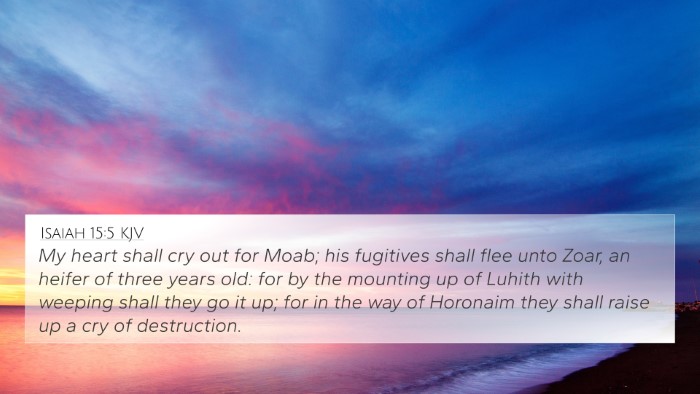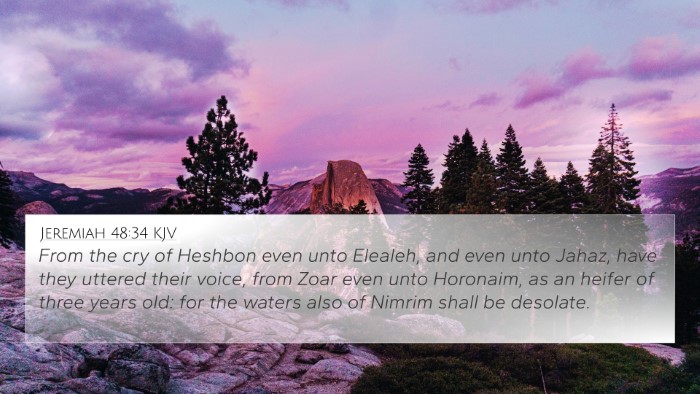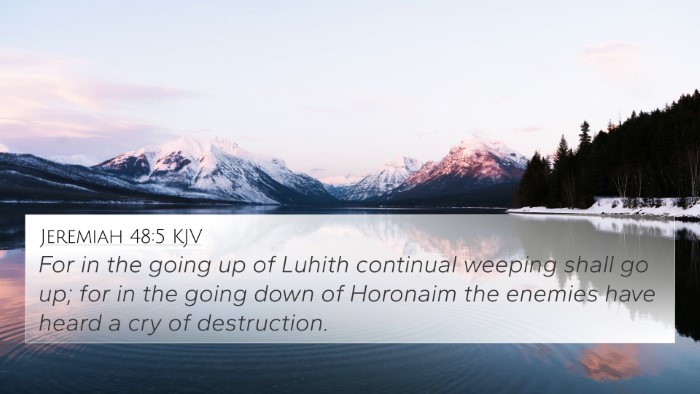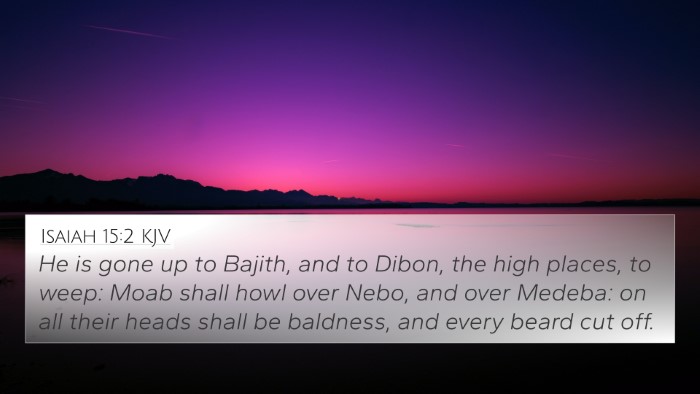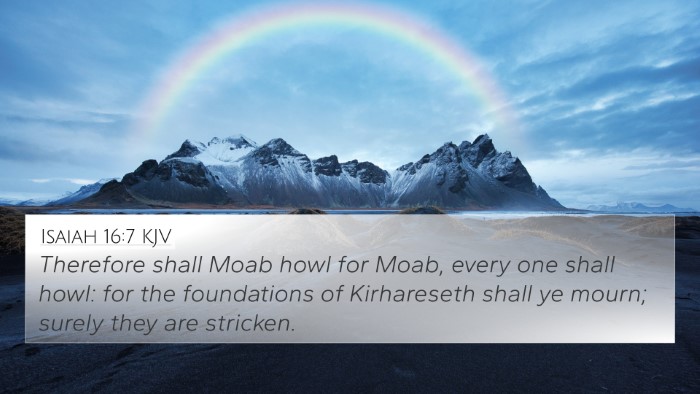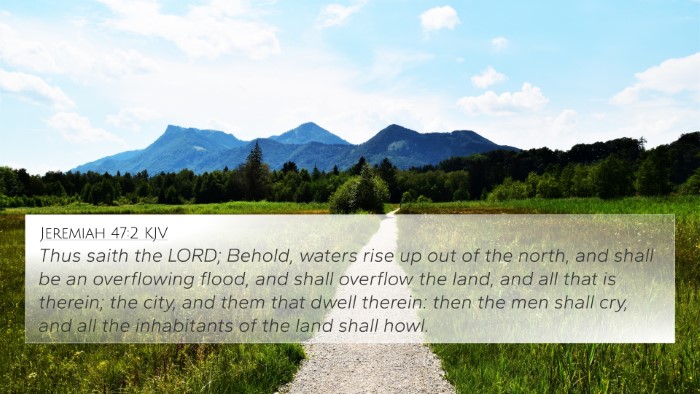Understanding Jeremiah 48:3
Jeremiah 48:3 reads: “A voice of crying shall be from Horonaim, spoiling and great destruction.” This verse comes from a passage where the prophet Jeremiah laments over the destruction of Moab, conveying strong emotions and prophecies regarding this nation.
Summary of Meaning
The verse serves as a poignant reminder of God's judgment against those who oppose Him. Several public domain commentaries offer valuable insights into its significance:
-
Matthew Henry Commentary:
Henry emphasizes the desolation that Moab will face. The “voice of crying” signifies immense grief due to destruction. This reflects God's position as a just judge who punishes nations for their iniquities.
-
Albert Barnes Notes:
Barnes highlights that Horonaim represents the initial place where destruction is felt. The great calamity indicates a widespread effect of God’s wrath, suggesting that it is a warning for surrounding nations as well.
-
Adam Clarke's Commentary:
Clarke discusses how this cry symbolizes the agony of those affected. He interprets the verse as an overarching prophecy regarding the social and political instability facing Moab due to their rejection of God.
Contextual Analysis
To better comprehend the implications of Jeremiah 48:3, it is crucial to analyze its context within both the immediate chapter and the surrounding biblical narrative:
- The chapter details God's impending judgment upon Moab due to their pride and idolatry.
- The imagery of crying underscores the emotional toll of war and devastation.
- This verse comes amidst a larger prophecy that communicates both the certainty of God's judgment and the hope of eventual restoration for His people.
Cross-references and Thematic Connections
Understanding Jeremiah 48:3 can be enhanced by examining its connection to other biblical verses through cross-referencing, revealing themes of judgment, lamentation, and God’s sovereignty:
- Isaiah 15:5: “My heart shall cry out for Moab; his fugitives shall flee.” - Echoes the sorrow for Moab’s fate.
- Lamentations 3:48-49: “Mine eye runneth down with rivers of water for the destruction of the daughter of my people.” - Reflects similar mourning.
- Ezekiel 25:8: “Thus saith the Lord God; because that Moab and Seir do say, Behold, the house of Judah is like unto all the heathen.” - Indicates God's judgment on Moab.
- Amos 2:1: “Thus saith the Lord; For three transgressions of Moab, and for four, I will not turn away the punishment thereof.” - Directly reflects judgment.
- 2 Kings 3:24: Describes the defeat of Moab by Israel.
- Romans 11:22: “Behold therefore the goodness and severity of God.” - Relates to the duality of divine judgment and grace.
- Revelation 18:10: “Alas, alas, that great city Babylon, that mighty city! For in one hour is thy judgment come.” - Understanding the finality of judgment.
Applying Insights from Cross-Referencing
The tools for Bible cross-referencing can aid in deeper understanding and study:
- Bible Concordance: An invaluable resource for locating specific verses and themes related to judgment and lamentation.
- Bible Cross-reference Guide: Helps identify interconnections between texts such as lamentations about nations.
- Bible Reference Resources: Use these for further exploration of biblical texts concerning God's judgment over Moab.
Conclusion
Jeremiah 48:3 provides profound insights into the themes of divine judgment and the natural human response to calamity and destruction. By employing tools for Bible cross-referencing and understanding thematic connections, one can recognize the weight of prophetic literature and what it communicates about God’s sovereign authority.



